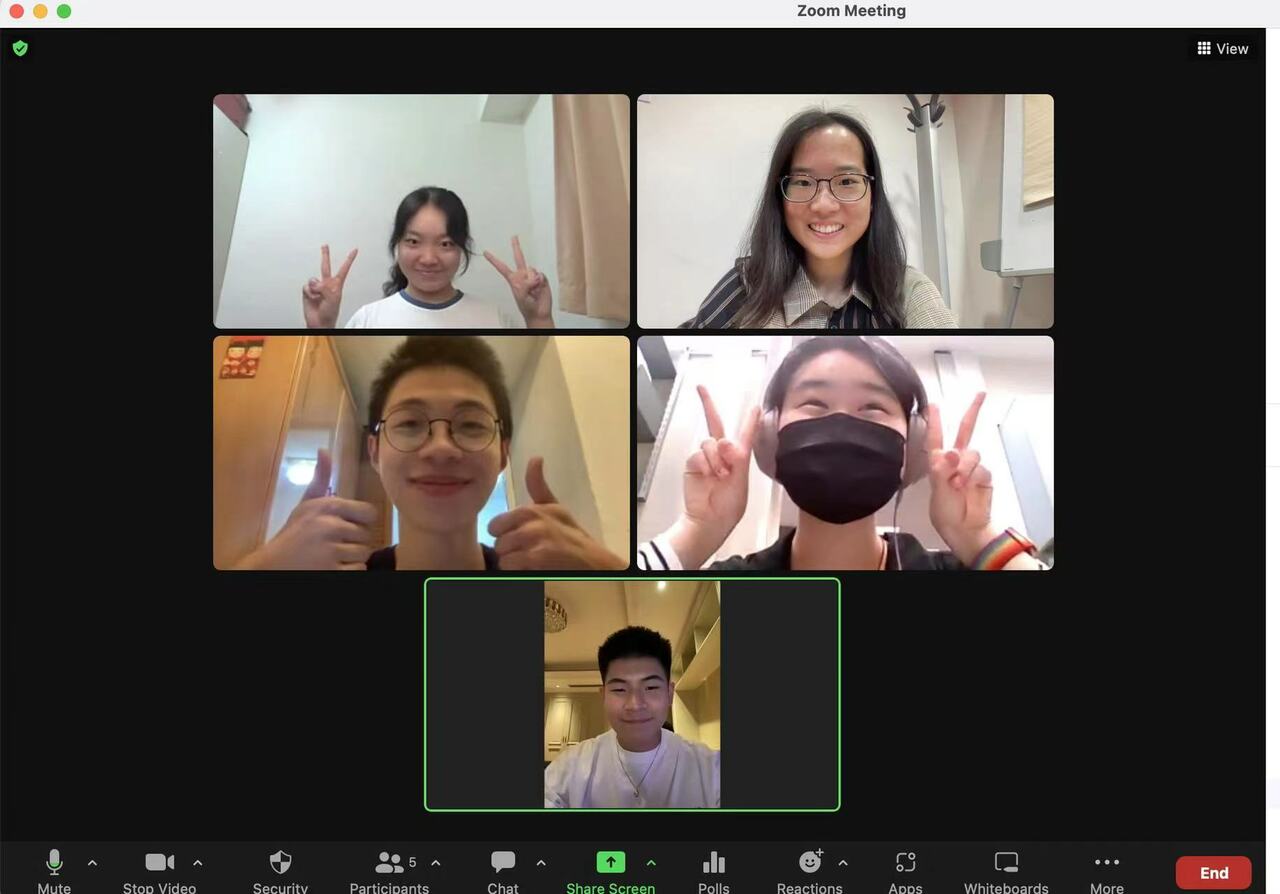
Leadership in Action: The power of community
In this Leadership in Action project, I worked with makesense to learn the skills needed to become community mobilizers and build concrete actions to tackle climate change. I teamed up with Joana, another Laidlaw scholar from the University of Hong Kong.
We chose the topic of paperless note-taking. This problem hit me when I was organizing my study material at the end of the academic year. I was shocked that I have used so much paper for drafting and taking notes that they filled up three large plastic bags.
The overuse of paper is not a small problem. Just take a minute and reflect on whether you have printed out some materials and thrown them away in the past few days. However, paper is produced using trees and statistics show that merely in the US there is approximately 1 billion trees worth of paper thrown away every year. Excessive paper use can contribute to deforestation, overloaded landfills, and global warming, which is an unwanted situation.
So what can we do to make an impact? We decided to advocate a paperless movement. Considering the time limit of the project, we focused on university students in our project who can be the pioneers to take the first steps and be role models for people in other professions and industries to follow.
From our daily observation, with easy access to paper and printing machines, students tend to print out a pile of lecture notes for note-taking and revision. Soon afterwards, the piles of paper will be sent to the landfill site after examinations are over. On the other hand, most students own a tablet or a computer. If students can change their habit of printing out notes for note-taking and revision, significant impacts can be brought positively to the environment.
To understand why some students stick to the paper and pen note-taking habit, we conducted desktop research as well as surveys. Our research shows that:
- There is a lack of information: some students do not know that computers can be a powerful alternative to taking notes.
- There is a lack of confidence: some students are not convinced that computers can generate organized notes and increase their productivity.
- There is a lack of awareness: students do not know that their behaviour is making a large impact on the environment.
To counter the above problems, we brainstormed several ideas:
- Establish a social media platform to advocate the eNotes campaign
- Set up an eNote gallery to increase student engagement in taking digital notes
- Recruit volunteers who are good at taking enotes to persuade their peers to change habits
We recruited more than ten volunteers. We made five posts on Instagram for our gallery exhibition. In the first two days, we posted various beautiful enotes contributed by our volunteers. In the following three days, we added a storytelling component to our gallery exhibition - we asked our volunteers to share their stories of taking eNotes. Our posts got likes and comments on Instagram which resulted in positive impacts on the community. In the future, we plan to host some webinars to share useful eNotes-taking skills and hand mobile applications.
To sum up, our project focused on reducing paper use by persuading university students to take electronic notes. Our achievements include establishing a social media platform, setting up an eNote gallery, and recruiting volunteers. We have learned so much about sustainability, leadership, community, and how to make an impact during this process. We would like to thank the makesense team for their mentoring and feedback. We would also like to thank our volunteers for their devotion.

Please sign in
If you are a registered user on Laidlaw Scholars Network, please sign in